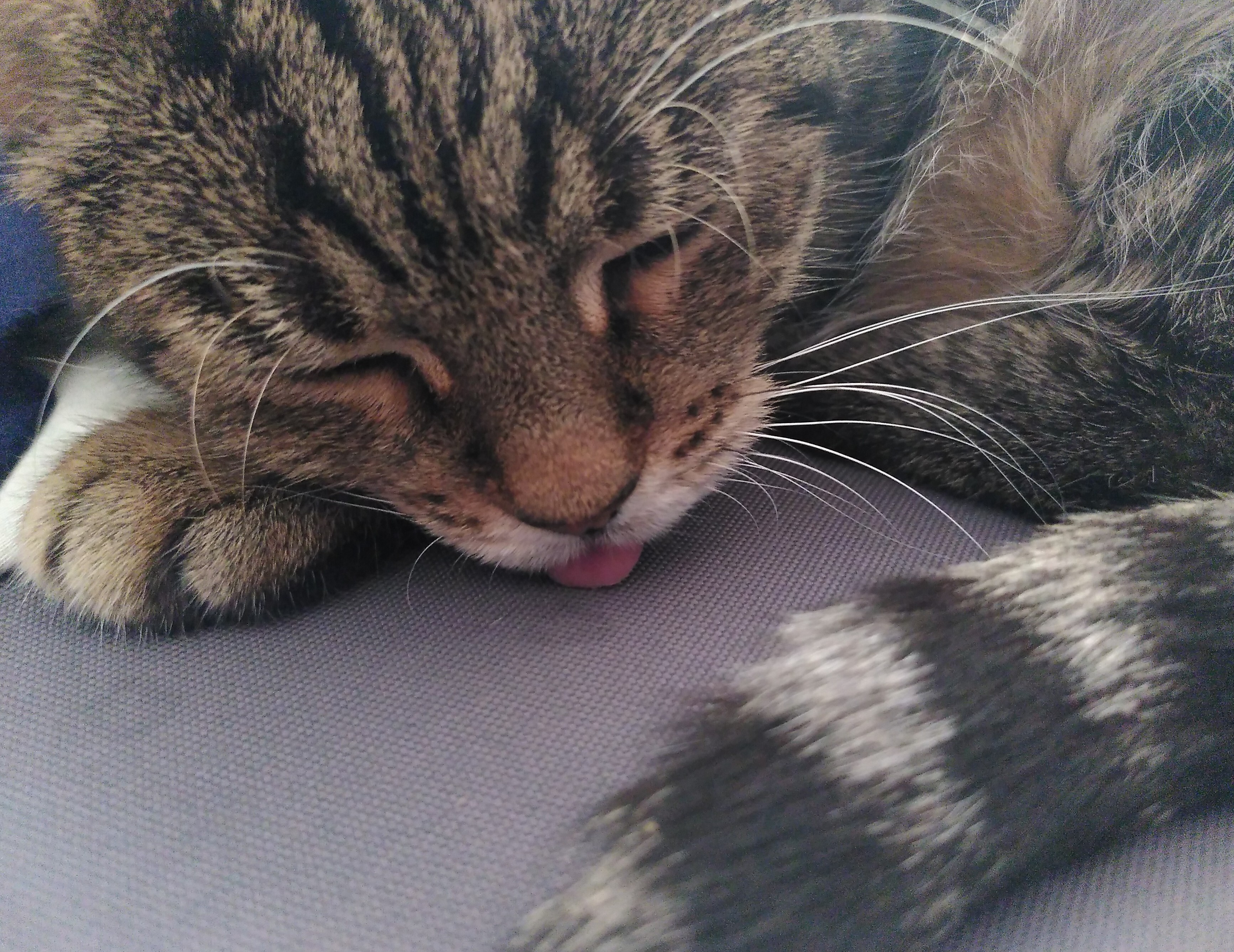cross-posted from: https://lemmy.world/post/12320962
Neurotypicals, what do autistic people look like to you?
Trying to get an idea of how NTs see us. I know that when I see autistic people, I see someone that’s like me. Obviously, that’s not how NTs perceive us, so what do we look like to yall??
They’re easily recognised by their bulging eyes, flicking tongues and leathery scales.
Wait, that’s monitor lizards. I’ve confused autistic people with monitor lizards again.
flicks tongue
My bad, sometimes I forget to mask my lizard traits.
deleted by creator
There isn’t a single degree of “autism”. Some people have it way worse than others.
One of my good friends has an autistic kid who is just one step away from having to wear a helmet to keep him from banging his head on walls. Pretty much non-verbal. Poor kid, I feel sorry for him and his own family.
My kid is a high functioning computer programmer making more money than I do creating those AI systems everyone is freaking out over. You’d likely never guess he had been diagnosed.
Someone who is serious most of the time and doesn’t laugh at jokes, since ordinary jokes are not funny to them.
A bit nerdy, intelligent, missing some social clues for how to act, and sometimes creates weird social situations without understanding why it’s weird.
Good hearted and more innocent then typical people. I can’t imagine them hurting a fly or any animal.
I realize I replied how they act, not how they look, since they look the same mostly, except maybe more unique dress styles.
Not really all that different. I have had multiple autistic friends and coworkers. Only two things really stand out and they’re absolutely generalizations that are untrue for some people and exist on a continuum for the rest.
First, I find the autistic crowd interrupts people more, sometimes a lot more, and some ramble quite a bit without getting to the point. It can be frustrating for the NTs and I’ve had to implement conch shell protocols and thought mapping so we can get through meetings and conversations effectively.
Second, the autistic folks tend to be blunter in speech but also often can take things straight. I don’t have to dance around issues as much. We put everything out on the table, work through it, then move on.
Edit: I should mention that I’m neurotypical but have CPTSD due to parental abuse. Those with CPTSD can have significant behavioral overlap with autism. Before getting a lot of therapy, I displayed multiple traits often associated with autism, including alexithymia. Thanks Dad!
Sometimes I wonder if all of us spectrumy people carry some kind of personal or deep family trauma.
I’ve seen the theory that autistic traits are just PTSD from the constant sensory overload trauma.
I can relate to that
Plus the trauma of being dismissed, not taking seriously by parents, teachers, doctors, etc becuase your reality doesn’t match theirs. (You’re too sensitive/ it is for your own good/etc)
Never mind how the cops treat people with autism, holy shit…
Outside of extreme cases, they just look like anyone else.
They look a lot like humans. I’m suspecting they might be humans, who just act a bit different sometimes.
deleted by creator
It depends on the person. I have a lot of autistic friends and the women were largely diagnosed as adults and tend to mask better because they pretty much had to as kids, so several of them are still kind of working through what that means for them and how their lives could’ve been different if they’d been diagnosed earlier. They’re pretty much all really straightforward, which is nice. I work a customer-oriented job and there’s a lot of expected behaviors that come with it and it’s nice to talk to someone who isn’t playing social games.
Occasionally I’ll meet a stranger who either can’t/doesn’t have to mask, and honestly, I’m glad for them. It may come off awkward to NTs, but I think it’s ultimately less harmful than trying to force people into a box they don’t fit in. I’ve seen what that’s like for my adult friends and I don’t wish it on anyone else.
There’s obviously degrees of autism. People with mild autism who can function can often seem normal, if a bit awkward. I’m neurotypical but work in software development so I might have more experience than most. I tend to think of my more autistic colleagues as very good at things like database management and solving speed issues where the task requires obsession and wanting things to be just so. But I generally would build (or assign) the GUI to a person who was more neurotypical since that involves a lot of communication. Different people have different strengths and we’d live in a much worse world if that weren’t true.
Obviously, some people are severely autistic and can’t really have a typical career. I generally find people with more severe autism to be awkward to talk to but always very nice. I’ve been told by lots of people that I’m “always smiling” and I suspect that helps. Some people send the wrong signals but my default, resting “face” is apparently friendly. In high school, I was sometimes able to chat with severely autistic kids and not frustrate them.
When I was growing up, they categorized the autistic folks as severe, profound, mild, or moderate. I apologize if those terms are antiquated. I’m old and the euphemism treadmill continues apace.
I think they’re generally considered high to low functioning autism, but it’s the same idea as your terms, and I wouldn’t get offended by them.
High/low functioning is also considered dated now too. The latest is level 1-3 based on amount of support needed:

Really? Wow, it’s news to me. How long ago was this?
I’m not positive but I believe it’s only been in the last couple of years. Personally I feel like it isn’t a particularly useful term update though because it is linked to perceived functionality anyway.
I imagine that “high-functioning” and “low-functioning” are super easy to tie to one’s usefulness in society, whereas support is more tied to an investment that has to be made into a person. The former says how valuable someone is and the latter doesn’t.
People?
six feet tall, skin-colored, wiggly ?
yup, that’s it.
I am ADHD so I am not neurotypical but… My cousin is autistic and comes off as shy. A friend of mine is also autistic and is more outgoing than I am but completely misses social cues and is very literal and rigid with rules.
Like ADHD, autism doesn’t necessarily manifest the same way with everyone.
Has your friend been checked out for ADHD as well?
Half of my friends are. That one might be AuDHD but they only mentioned being formally diagnosed with autism.
I ask that because some AuDHD people flip flop between super sociable and super “anti-social”
Ive never seen them be particularly antisocial. Theyre just… oblivious to social cues and what not.
That’s why I used quotes. It’s a commonly used yet inaccurate term
I’ve had a lot of autistic friends; including a childhood friend, someone I dated, and a current housemate. (For clarity, those are three different people.) So I have a pretty positive general impression: these are folks I’ve gotten along well with, often better than I’ve gotten along with other people in the same social environment.
One recurring theme I see is people who are often deeply into writing, one way or another. All three of the people I mentioned above fit this pattern: whether with an interest in writing-systems (like runic, hieroglyphics, or shorthand), calligraphy, computer font design, asemic writing, or other variations on the theme. Two out of three are also ambidextrous, and make use of that in writing.
Another thing I see is people who tend to have been run-over by schooling and other institutions, even more than the rest of us “weird kids”. One of those three people much more so than the others; they went through institutionalization and a range of wrong diagnoses (schizophrenia, really?!) before getting better medical & life help.
Two of the three people mentioned above went through periods of being really into psychedelics, often with powerfully positive experiences and few or no bad trips. (In one case they got curious about psychedelics because NTs kept asking them if they were tripping when they weren’t!)
I’ve encountered the stereotype that autistic people can’t or don’t lie. This is not really true, but seems to point at something. I’m not sure whether it’s really an inherent tendency towards non-deception, or whether it’s from learning that lying doesn’t work out very well for them. Autistic people are as capable of self-deception as everyone else.
Also, alexithymia is real; but once someone knows they have it they can certainly learn how to work around it with explicit reasoning about their own physiological responses.
To be clear, I’m not entirely sure I’m in the target audience for this question. On diagnostics such as the Autism Spectrum Quotient test, I get values that are in between clearly NT and clearly AS. However, I don’t have the same sort of sensory “stuff” that my diagnosed-autistic friends have had — things that those tests often don’t even ask about.
I’m autistic and I’ve never seen anyone mention the “NTs think I’m tripping” thing mentioned before, but it’s definitely something I experience. I like going to festivals and club nights (as long as it’s the right music), and I’ve gotten it quite a lot even though I’m mostly sober. It’s weird to get a very concerned “are you ok?” when I’m just enjoying the lights and music, but at least it comes from a good place. I’ve joked a few times that I’m just perpetually high.
I get this a lot as someone with ASD and ADHD, and sometimes it’s insulting.
I think that writing thing must just have been a coincidence, neither me nor any of my autistic friends are into writing, the closest I got was a temporary obsession with codes as a child.
I’ve never taken any non medicinal drugs apart from small amounts of caffeine.
Lying truly doesn’t work out well with me, I’m usually quite a truthful person, although I can participate in social lying just as well as anyone and it doesn’t create the same feeling of discomfort that antisocial lying does.
What do colorblind people look like to you?
I’m colorblind (like I struggle with reds and greens), it’s a “silent” thing that’s different about me.
I try not to think in these boxes… If I meet you, you are who you are, nothing more nothing less.
They have a funky fashion sense because they can’t see the colours
/s
A lot like me
Some time ago I’ve read an article about someone who works in a place where they take care of autistic people, definetly not something I would do.
I see them like geniuses which can’t wipe their own ass. Uncomprehended geniuses living in their own head.
Weird contradiction about what socially it’s defined as a genius.
They look like fried eggs, bacon, and a waffle!
Iunno
For me it depends where on the spectrum they are and how old they are. Some older people are totally normal for my definition of normal and would have hard time to explain difference between them and just some introvert.
Sadly I know few kids with autism and while I know that it is autism, to tell you the truth they seam stupid (low inteligence) or something like that. They do not speak, there is no reasoning with them, no explanation from them even at 5 yo.
I usually doubt it is just autism and think there must be some teauma too, since their parents are not really good parents.
I hope they will learn to speak or communicate in some way, because like this they will not be able to take care of themselves.















